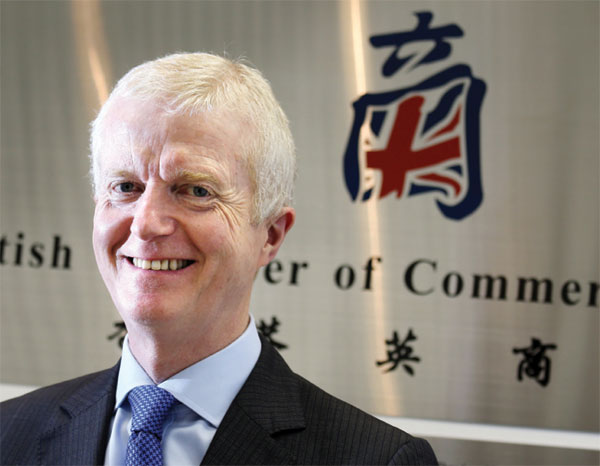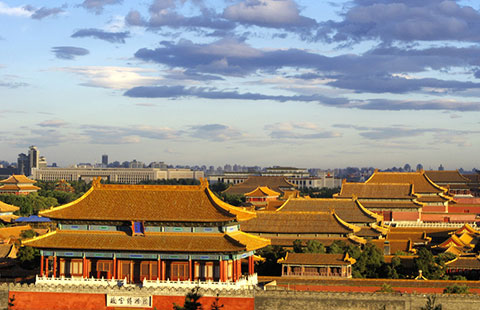'HK will greatly benefit from closer UK-China ties'
By Kahon Chan (China Daily) Updated: 2015-10-28 11:04
 |
|
Andrew Seaton, executive director of the British Chamber of Commerce in Hong Kong, said Hong Kong would benefit considerably from new business opportunities arising from closer Sino-British relations following President Xi Jinping’s successful UK visit. [Photo by Parker Zheng / China Daily] |
Andrew Seaton, executive director of the British Chamber of Commerce in Hong Kong, was the United Kingdom’s consul-general to Hong Kong and Macao between 2008 and 2012. He also served as head of the China Department in Britain’s Foreign Office between 2000 and 2004.
In an exclusive interview with China Daily, Seaton praised the president’s official trip last week. He said the media coverage it received has helped to boost relations between British and Chinese companies.
Mainland corporations’ presence outside the country has increased lately — so too has London’s renminbi business. But the veteran diplomat said Hong Kong still had unique assets which appealed to British investors due to the "One Country, Two Systems" arrangement.
"Maybe 15, 20 years ago, Hong Kong’s role was bigger as a percentage than it is now," he said. "But nonetheless, because the overall size of the business cake has got so much bigger, this will represent a very good business opportunity for Hong Kong," explained Seaton.
Proximity to the mainland, the common law system, and confidence in the market and regulators had traditionally drawn British companies to Hong Kong, Seaton noted. The city, home to over 7 million people, also favors British imports. Hong Kong was the UK’s second-largest market for goods in Asia Pacific in 2014, after the mainland, and ranked 11th worldwide.
Statistics released by the Hong Kong government on Monday shows that this year the SAR boasted 631 firms with parent companies based in the UK, up from 505 in 2010.
During his six-months in his current role, Seaton has observed an influx of small and medium-sized businesses which chose Hong Kong as a springboard into Asia. These included a consultancy for efficient energy management and financial technology.
But he said the increasing prominence of smaller firms had also increased demand for affordable international school places. The chamber was pleased Hong Kong has increased its number of schools in recent years. But Seaton said the fact that many of these schools were expensive remained an "issue".
Seaton returned to the city in April for his new role after retiring from his diplomatic career. Along with work opportunities, Seaton said he also appreciated Hong Kong’s hiking trails, back streets and markets. It was also "striking" for him that in just three years, Hong Kong had nurtured a thriving community of homegrown startups.
Sitting on Seaton’s desk during the interview was the Law Reform Commission’s proposal to legalize third-party funding for arbitration in Hong Kong. Seaton explained he had been approached for feedback.
Third-party financing for litigation has a stronghold in London, which was named the most preferred and used seat for arbitration in a recent survey — Hong Kong was ranked third. London-based Harbour Litigation Funding, one of the world’s largest, opened an office in Hong Kong last month.
- Blueprint 'focuses on growth, livelihoods'
- Applications for civil service exam drop as companies beckon
- Modernization drive boosts PLA's capabilities
- China looks to innovate the disabled aid industry
- Leaders focus on growth at plenum
- China to buy more grain abroad, shift farming focus
- Yangzhou record for fried rice is revoked
- COMAC developing wide-body jetliner
- 100 million couples would be eligible under a universal two-child policy
- Seminar addresses humanitarian aid challenges







